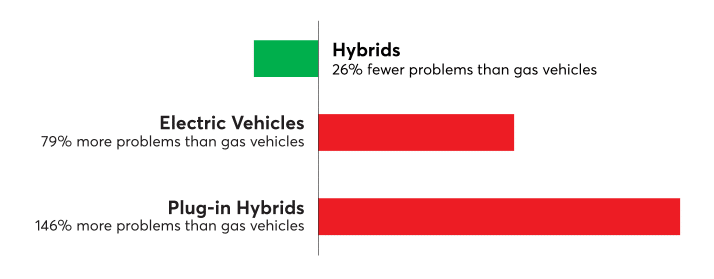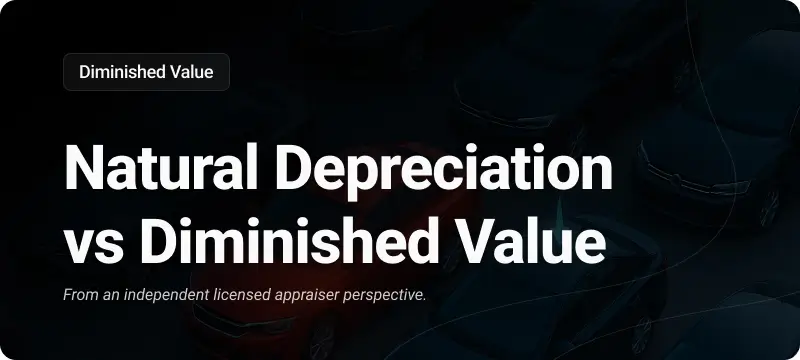In the ever-evolving automotive landscape, electric vehicles (EVs) are at the forefront of a sustainable future. A recent survey has brought attention to the reliability challenges faced by EVs compared to their traditional internal combustion engine (ICE) counterparts.
This article delves into the survey findings, illuminates the hurdles confronted by EV manufacturers, and offers insights to empower consumers in navigating the dynamic automotive industry.
Are Electric Cars Reliable? Survey Findings Unveiled (PDF)
Unveiling Key Survey Findings
1. EVs Encounter Growing Pains
The survey revealed a significant revelation – EVs exhibited a noteworthy 79% more issues than conventional gasoline vehicles. This stark contrast is attributed to the automotive industry’s experimentation with new powertrains and cutting-edge features. Experts suggest that the lower reliability score is a natural byproduct of manufacturers fine-tuning their EV offerings.

2. Hybrids Take Center Stage
Amidst the reliability revelations, hybrids emerged as reliable performers, showcasing 26% fewer problems than their gasoline-powered counterparts. This commendable performance is attributed to the longstanding legacy of hybrid technology and the meticulous approach adopted by manufacturers.
3. Brand Rankings Unveil the Reliability Tapestry
In the realm of reliability rankings, Asian auto brands, notably those from Japan and Korea, emerged triumphant, reinforcing their commitment to delivering dependable vehicles. Conversely, domestic brands found themselves trailing, underscoring the challenges faced by those quick to embrace new technological frontiers.
| Brand Reliability Rankings | ||
| Rank | Brand | Brand Average |
|---|---|---|
| 1 | Lexus | 79 |
| 2 | Toyota | 76 |
| 3 | Mini | 71 |
| 4 | Acura | 70 |
| 5 | Honda | 70 |
| 6 | Subaru | 69 |
| 7 | Mazda | 67 |
| 8 | Porsche | 66 |
| 9 | BMW | 64 |
| 10 | Kia | 61 |
| 11 | Hyundai | 56 |
| 12 | Buick | 55 |
| 13 | Infiniti | 53 |
| 14 | Tesla | 48 |
| 15 | Ram | 46 |
| 16 | Cadillac | 45 |
| 17 | Nissan | 45 |
| 18 | Genesis | 44 |
| 19 | Audi | 43 |
| 20 | Chevrolet | 43 |
| 21 | Dodge | 42 |
| 22 | Ford | 40 |
| 23 | Lincoln | 38 |
| 24 | GMC | 36 |
| 25 | Volvo | 28 |
| 26 | Jeep | 26 |
| 27 | Volkswagen | 26 |
| 28 | Rivian | 24 |
| 29 | Mercedes-Benz | 23 |
| 30 | Chrysler | 18 |
4. Vehicle Reliability Rankings by Category: A Quick Reference Guide
To provide a comprehensive view, Consumer Reports ranks vehicle types based on average reliability scores across various categories. This ranking serves as a quick reference point for readers exploring the reliability of different vehicle types.
| Vehicle Reliability Rankings by Category | |
| Rank | Vehicle Type |
|---|---|
| 1 | Compact cars |
| 2 | Sports/sporty cars |
| 3 | Small pickups |
| 4 | Midsize/large cars |
| 5 | Luxury midsize/large cars |
| 6 | Compact SUVs |
| 7 | Subcompact SUVs |
| 8 | Luxury midsize SUVs |
| 9 | Luxury compact cars |
| 10 | Luxury compact SUVs |
| 11 | Minivans |
| 12 | Midsize 2-row SUVs |
| 13 | Luxury midsize 3-row/large SUVs |
| 14 | Midsize 2-row/large SUVs |
| 15 | Electric cars |
| 16 | Electric SUVs |
| 17 | Full-size pickups |
| 18 | Midsize pickups |
| 19 | Electric pickups |
Insights for Informed Consumer Choices
For those contemplating an EV purchase, experts advise considering models that have weathered the market for a substantial duration. Opting for established models can potentially mitigate the probability of encountering “growing pains” typically associated with recently introduced vehicles.
Unraveling Challenges in the Electric Pickup Segment
The survey delves into the electric pickup segment and reveals it to be the least reliable. Established automakers grapple with challenges linked to charging infrastructure and battery technology, while newer entrants contend with manufacturing intricacies such as body hardware, paint and trim, and climate systems.
Conclusion
The comprehensive survey delivers profound insights into the prevailing state of the automotive industry. While EVs may initially encounter reliability challenges, the data underscores the significance of selecting tried-and-tested models.
As the automotive landscape matures, the anticipation is that EV reliability will undergo positive transformations, providing consumers with increasingly dependable and sustainable transportation choices.



